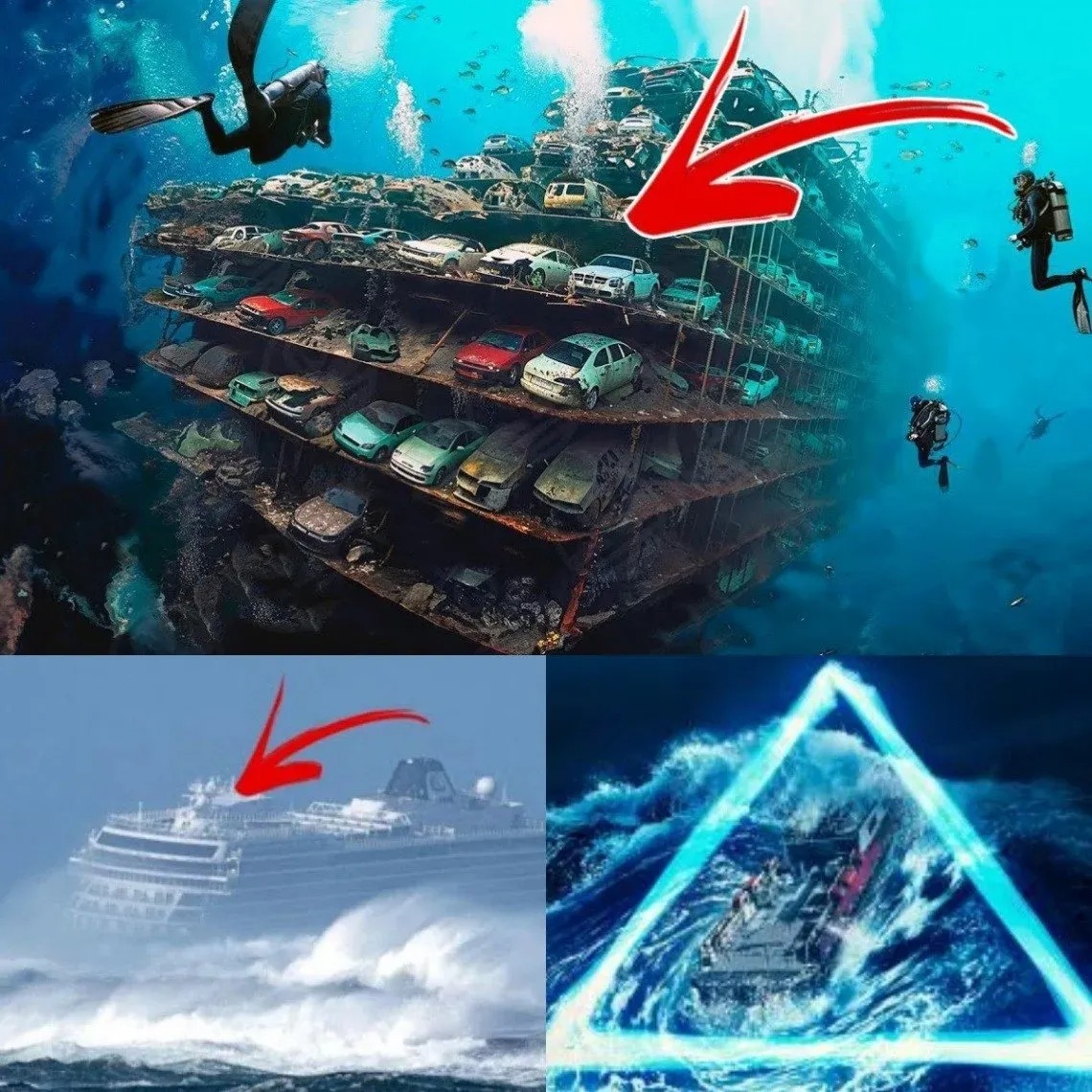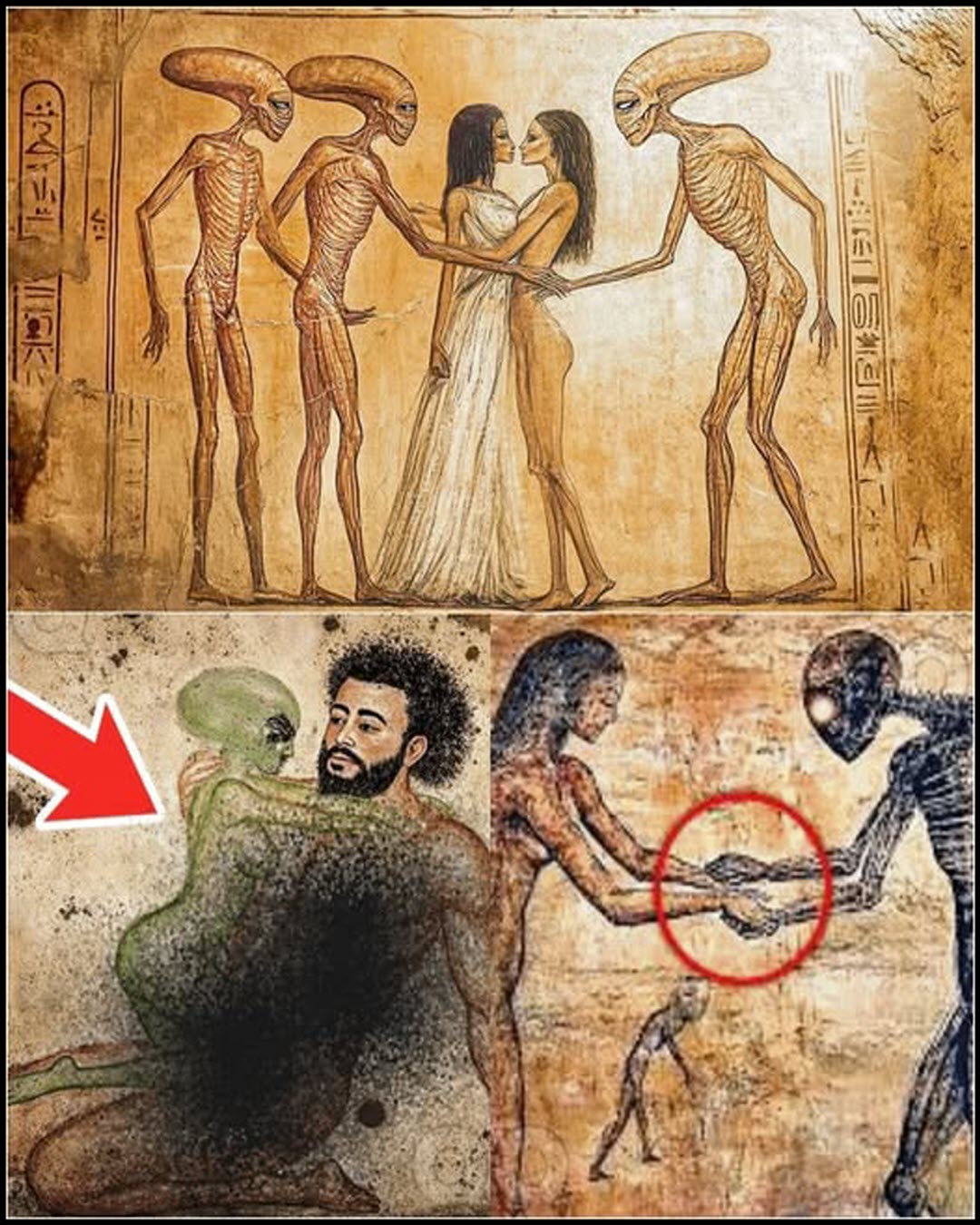Pompeii’s Frozen Horse: 2,000 Years Preserved
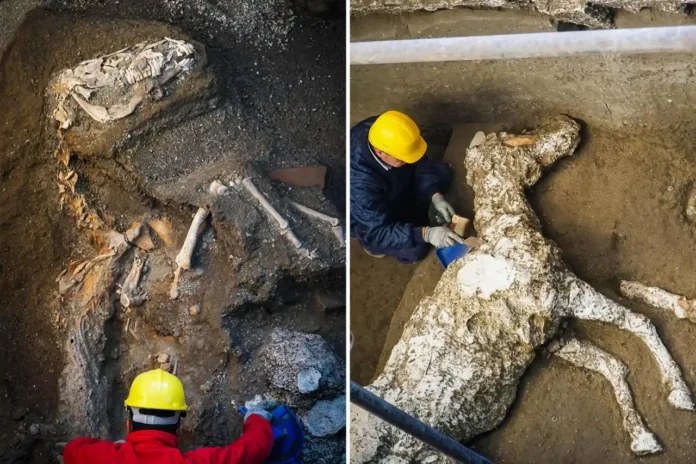
The remains of a horse still in its harness have been unearthed in Pompeii, nearly 2,000 years after the catastrophic eruption of Mount Vesuvius buried the city in ash.
Archaeologists have hailed the horse, which was tall and well-groomed, as a find of “rare importance.”
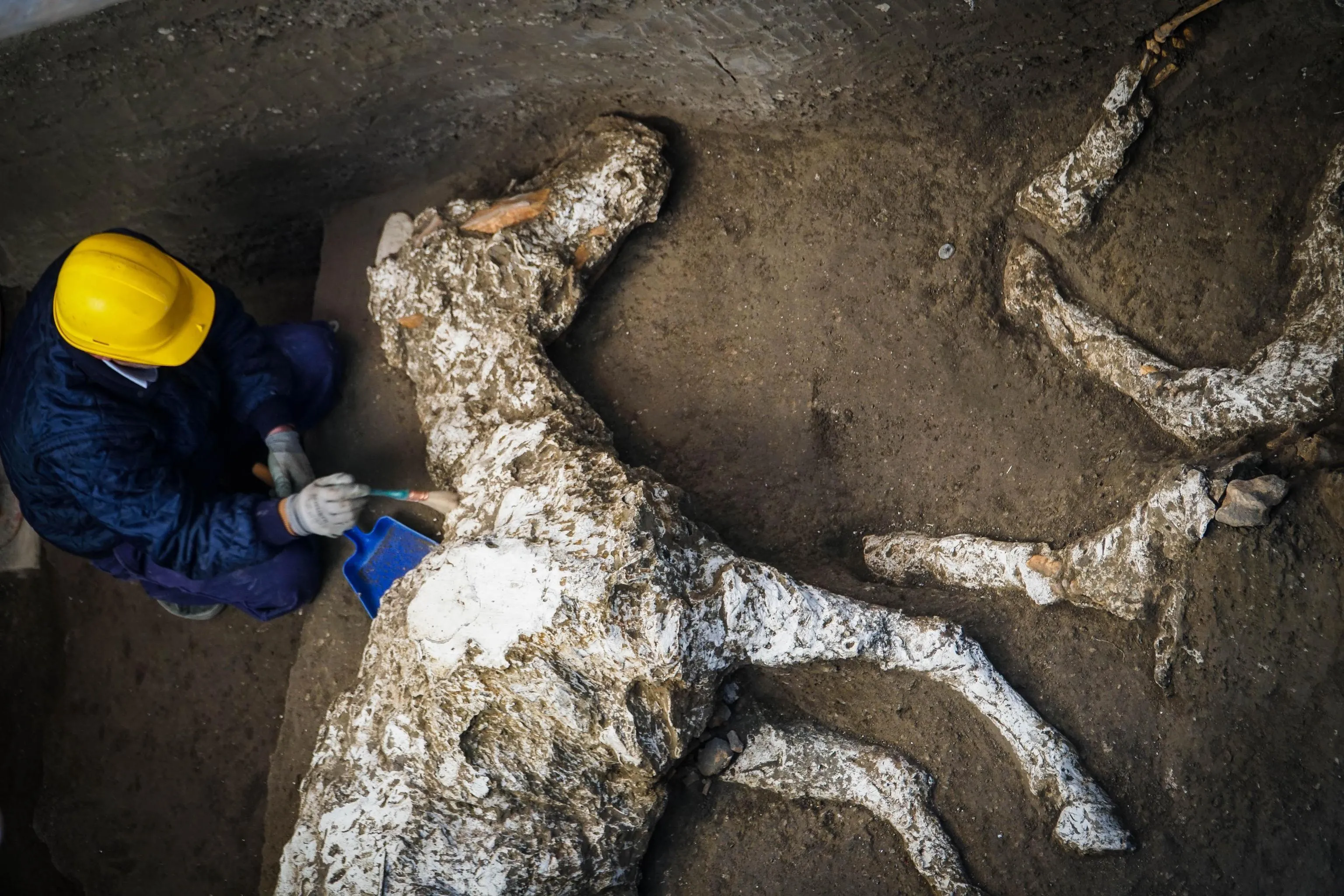
An archaeologist inspects the skeletal remains of a horse found with its harness still on. Credit: AP: Associated Press
The horse was saddled and ready to ride, possibly to help rescue the Pempeians fleeing the eruption of 79 AD.
Experts revealed that the chair was richly decorated with bronze ornaments.
It was found buried alongside the remains of two other horses in the Villa of the Mysteries, a suburb of Pompeii that once belonged to a high-ranking military magistrate or Roman general.
When it erupted, Vesuvius buried the city under millions of tons of volcanic debris.

Archaeologists were able to make a cast of the horse. Credit: EPA
Massimo Osanna, director of Pompeii’s archaeological park, said the horses met a “fierce and terrible end” when they suffocated in the ashes or boiling fumes from Vesuvius’s ash cloud.
The horses’ harnesses were reduced to their skeletons by the heat of the explosion.
The estate was first unearthed in the early 20th century, but much of it was reburied and has since been targeted by looters.
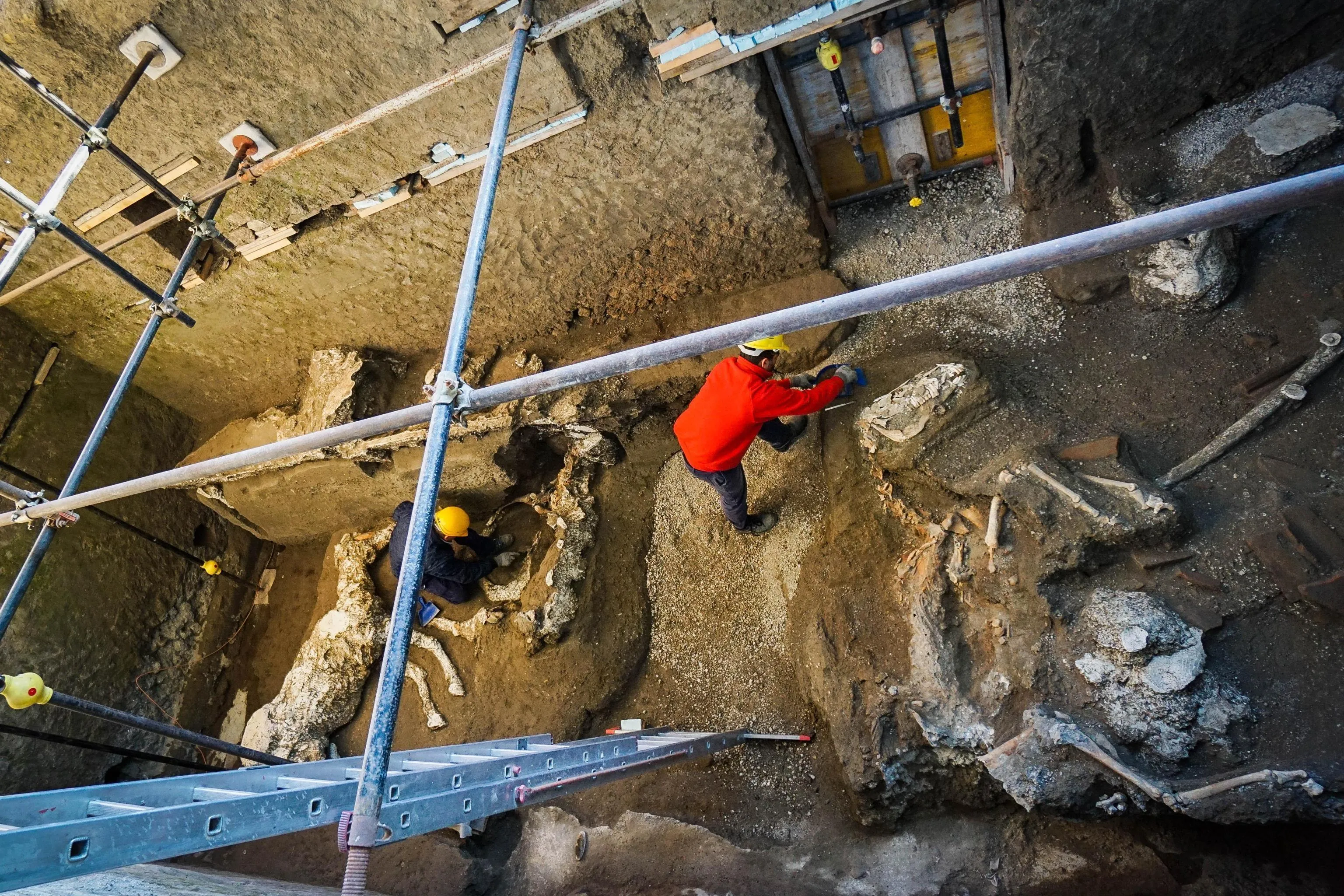
Three horses in total were found in the excavation. Credit: AP: Associated Press
Osanna added: “The entire area will be excavated and returned to the public.”
Archaeologists excavating the luxurious villa overlooking the sea also found wine presses, an oven and incredible frescoes.
Mount Vesuvius, on the west coast of Italy, is the only active volcano in continental Europe and is believed to be one of the most dangerous volcanoes in the world.

